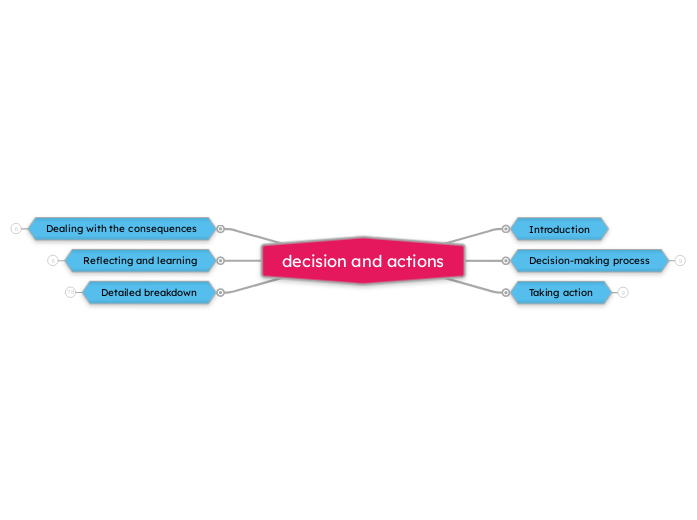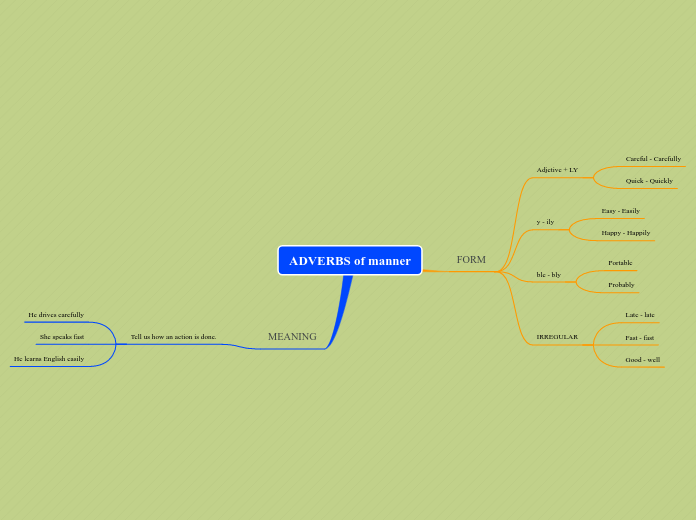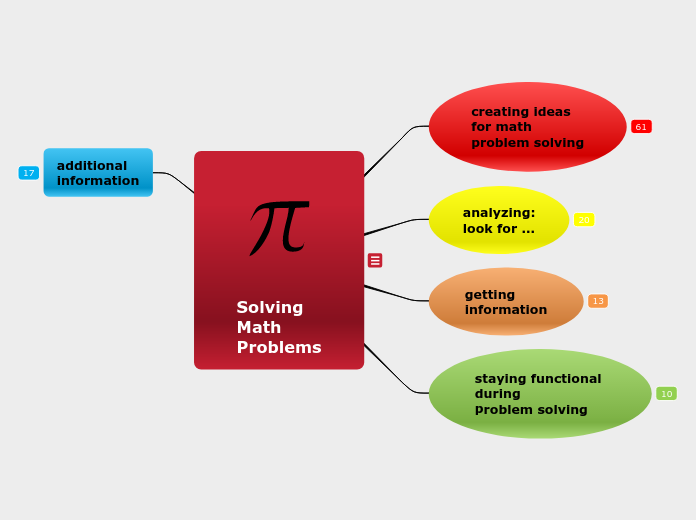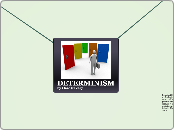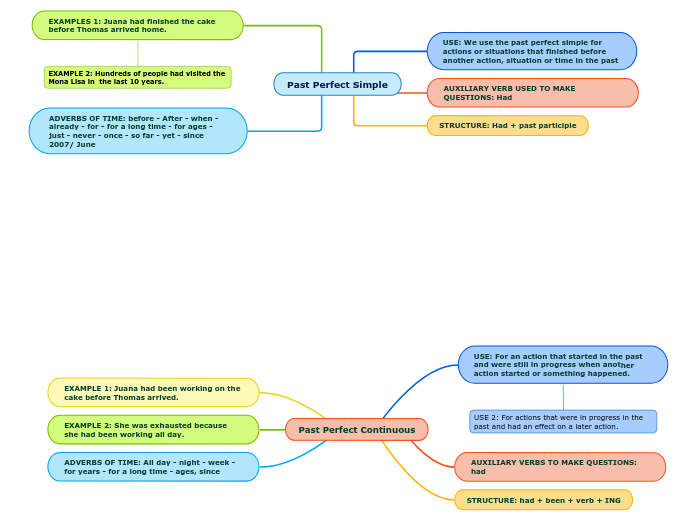decision and actions
Detailed breakdown
Continuously learn and grow from past experiences
Make necessary changes to improve future decision-making
Adapt decision-making strategies based on feedback
Apply insights and lessons learned to future decisions
Understand what worked well and what could be improved
Identify key takeaways from the decision-making process
Reflect on the success or failure of the plan
Evaluate the outcome of the decision
Collaborate with others to navigate unforeseen circumstances
Reach out for help or guidance when needed
Develop solutions to overcome obstacles
Identify and address any unexpected challenges or problems
Develop strategies to mitigate or minimize these consequences
Identify the potential negative outcomes of the decision
Plan for how to leverage and maximize these outcomes
Identify the potential positive outcomes of the decision
Make necessary adjustments to ensure success
Identify any deviations from the plan
Monitor the achievement of desired outcomes
Regularly assess the progress of the plan
Delegate tasks based on skills and capabilities
Identify individuals or teams responsible for each task
Allocate resources effectively to support the plan
Determine the required resources (financial
etc.)
human
Set deadlines for each action
Determine the necessary steps and their sequence
Establish measurable goals and objectives
Clearly define the desired outcomes
Consider the impact on various stakeholders and factors
List the advantages and disadvantages of each option
Prioritize what is most important in the decision
Reflect on personal beliefs and values
Weigh the potential consequences of each choice
Identify the potential risks and benefits of each option
Consider the potential outcomes of each option
Assess the available alternatives
Utilize various sources such as reports
and experts
studies
Gather relevant data and information
Understand the context and background
Clearly define the issue at hand
Reflecting and learning
Incorporating feedback for future decision-making
Implementing improvements
Adjusting decision-making strategies
Evaluating the decision and actions taken
Identifying lessons learned
Assessing the effectiveness
Dealing with the consequences
Adapting to unforeseen circumstances
Seeking support or assistance
Problem-solving
Anticipating potential outcomes
Negative consequences
Positive consequences
Taking action
Monitoring and evaluating
Making adjustments if necessary
Tracking progress and outcomes
Implementing the plan
Assigning responsibilities
Allocating resources
Formulating a plan
Creating a timeline
Setting goals and objectives
Decision-making process
Making the decision
Weighing the pros and cons
Considering personal values and priorities
Analyzing the information
Assessing the risks and benefits
Evaluating the options
Gathering information
Conducting research and data collection
Identifying the problem or situation
Introduction
